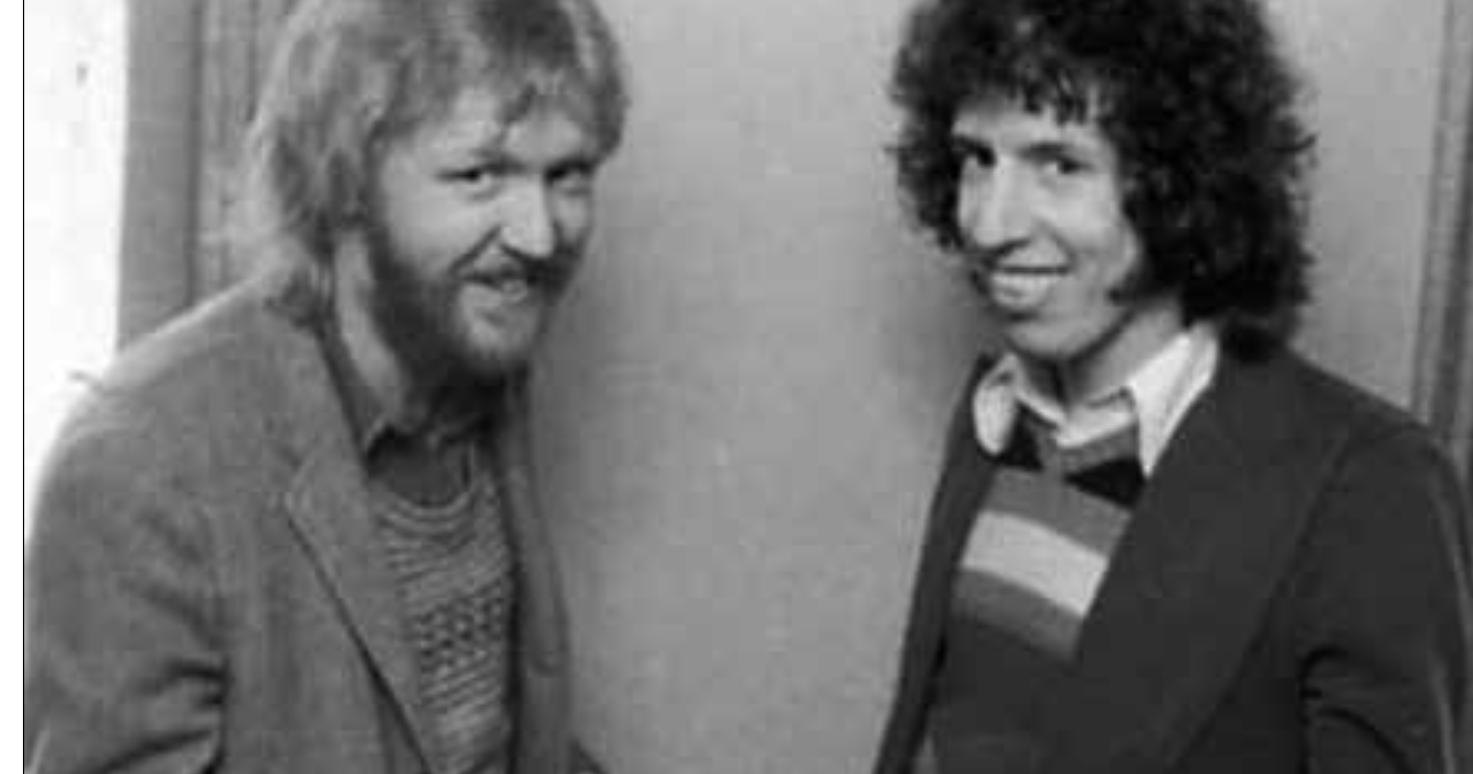There is a reason why records need producers, not just the artists making the record.
Case in point, of the great records of all time, “Without You,” by Harry Nilsson. Fifty years ago today, “Without You” began a four week run at number 1 on the Billboard charts. The album it came from, “Nilsson Schmilsson” also went to number 1.
Two more hit singles came out of, “Coconut” and “Jump in the Fire.” Nilsson, famous for “Everybody’s Talkin’ at Me,” hadn’t had a hit in two years, and would never have one as big as this again.
Nilsson had an amazing voice, a favorite of all the Beatles, too. But he was difficult and hard to work with. Famed producer Richard Perry created “Nilsson Schmilsson” and its sequel, “Son of Schmilsson.” In his juicy memoir, “Cloud Nine,” Perry — who lives in Los Angeles and has a Special Merit Lifetime Achievement Award from the Grammys — recalls how Nilsson almost sabotaged the recording of his biggest hit:
“One night, working late, Harry did a demo of “Without You,” just him pounding
the piano keys so hard you could feel his fingers bleeding, and singing as
if his throat were being torn apart. By this point though, Harry had grown
to hate the song. He said that it was just a piece of pop fluff—but he felt
that this kind of over-the-top, angst-filled vocal performance might give
it some sort of credibility. He wanted this demo to be the record! He said,
“You never hear a performance like this on a record,” he insisted and I told
him there was a good reason why. I felt like I literally had to twist his arm
to do.
It was midnight when we gathered to cut the track for “Without You.”
I made a few changes in the rhythm section with Jim Keltner, another one
of my favorite drummers, Gary Wright of “Dream Weaver” fame on piano,
John Uribe on acoustic guitar, and Klaus Voormann back on bass. I started to
carefully mold the track into shape with the musicians, giving special emphasis
to the dynamic contrasts that the song was based upon. But when I would
ask the musicians to come in for a playback, Harry would say to them, “Does
anybody know what this song is about? How could anyone like this song?”
I had to take him to a private room and implore him to stop sabotaging
our efforts to make a proper track. He was playing dirty pool. Finally, I came
up with a strategy to get him to stop: I told him that if he didn’t like the
new track better, we wouldn’t use it. I was already totally convinced that we
were on the verge of making a very special record. Much as I hated having
to make that concession, the promise I made proved to be an effective way
of silencing Harry. Without any further interference, in less than an hour,
the basic track was done, other than some careful editing to select the best
drum fills and insert them into the master. a proper track with musicians.”
The next day, I let Harry know that we were ready for his vocals, but
he said he needed to have a meeting with me first. We met in the lounge of
the Dorchester Hotel at four o’clock that afternoon for high tea, and I was
eager to hear what Harry had on his mind. Not in my wildest dreams did I
imagine he would tell me that he still liked the demo version better! After
exhausting my considerable powers of persuasion, I reminded him of the
commitment he made when he agreed to let me call the shots. He looked
me dead in the eye and uttered a vintage Nilsson reply: “Well, I lied!”
Vexed, I looked at my watch and saw that it was six o’clock. “Holy shit,
Harry,” I said, “we’re booked in the studio RIGHT NOW!” Without another
word, we hustled out of the Dorchester, jumped into a taxi, and got to the
studio where everything had been all set up for his vocals.
It was a once-in-a-lifetime performance! Harry was at his best. Not
only did he deliver a Grammy Award–winning vocal, but we also never
discussed the demo version again, nor did we have the slightest conflict for
the duration of making the album. I never did understand the reason for
Harry’s fortunate about-face, but I figured it was best not to ask.
“Without You” is as much a tribute to Nilsson’s voice as it is to Perry’s memorable, rich production. He would soon follow it up with Carly Simon’s “You’re So Vain” and Ringo Starr’s “Photograph” among the greatest and most enduring pop singles in history.

